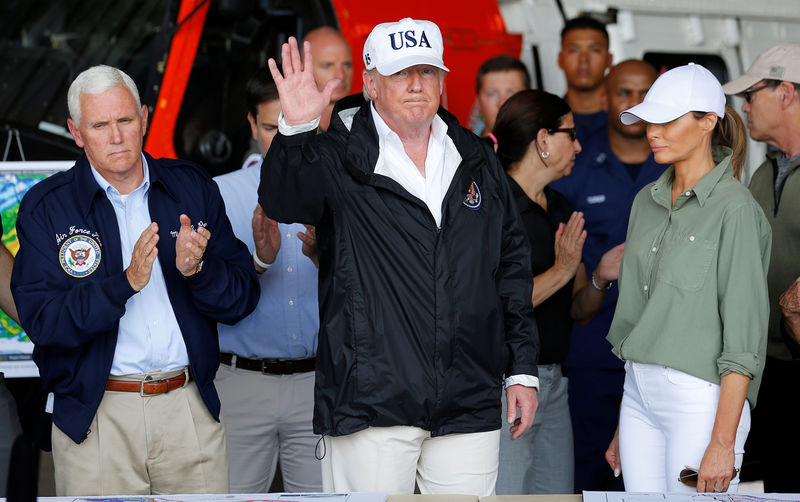WASHINGTON (Reuters) - President Donald Trump on Thursday stood by his belief that both sides were to blame for violence in Charlottesville, Virginia, between white supremacists and counterprotesters last month.
Trump had drawn criticism for not initially condemning white supremacists who organized the event on Aug. 12, with even some of his fellow Republicans expressing dismay at his opinion.
Trump spoke to reporters aboard Air Force One a day after a meeting with South Carolina Republican Senator Tim Scott, an African-American who had expressed concern about Trump's comments.
"We had a great talk yesterday," he said of his meeting with Scott.
"I think especially in the light of the advent of antifa, if you look at what’s going on there. You have some pretty bad dudes on the other side also. And essentially that's what I said."
Trump said anti-fascist groups known as the "antifa" must share blame for neo-Nazis and the Ku Klux Klan fighting with anti-racism protesters in the streets. One woman was killed when a suspected white nationalist crashed his car into demonstrators.
On Thursday, the president also signed a resolution sent to him by Congress that condemned the violence in Charlottesville and opposed "hatred, bigotry, and racism in all forms."
"No matter the color of our skin or our ethnic heritage, we all live under the same laws, we all salute the same great flag, and we are all made by the same almighty God," Trump said in a statement regarding the resolution.
In Berkeley, California, violence erupted on Aug. 27 when a small group of masked antifa and left-wing protestors attacked right-wing demonstrators.

"Now, because of what’s happened since then with antifa, you look at really what’s happened since Charlottesville. A lot of people are saying, in fact a lot of people have actually written, 'Gee, Trump might have a point,'" he said.
